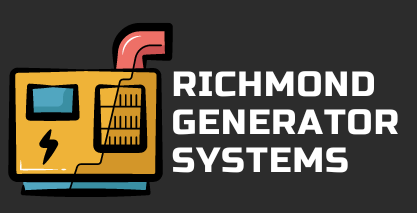
Whole House Generators in Granite VA
When considering a whole house generator for your home, it's crucial to understand what they are, how they function, and what to expect in terms of installation and maintenance. A whole house generator is a backup power system designed to provide electricity to your entire home during a power outage. Unlike portable generators, which typically only power a few essential appliances, whole house generators can handle all your household's electrical needs. There are several types of whole house generators, including:
- Standby Generators: Permanently installed outside your home and connected to your electrical system, these generators automatically turn on when a power outage is detected.
- Portable Generators: These can be moved around and used to power specific appliances or circuits in your home. They require manual setup and connection during an outage.
- Inverter Generators: Known for their quiet operation and clean power output, inverter generators are ideal for sensitive electronics. They are often used as a supplementary power source rather than a primary one.
What We Offer
At our company, we specialize in providing top-quality
whole house generators in Granite, VA tailored to meet your specific needs. We offer a range of products from leading manufacturers, ensuring reliability and performance. Our services include consultation, installation, and ongoing support to ensure your generator operates smoothly when you need it most.
- Residential Generators
- Commercial Generators
- Portable Generators
- Electric Generators
- Propane Generators
- Solar Generators
- Generator Repairs
- Generator Maintenance
- Generator Parts

We will get back to you as soon as possible.
Please try again later.
How Do They Work?
Whole house generators work by detecting a power outage and automatically switching to generator power. They are connected to your home's electrical system through an automatic transfer switch, which ensures a seamless transition from the grid to generator power. When the power is restored, the generator automatically shuts off, and your home resumes normal operations.
Fuel Sources
Whole house generators can run on various fuel sources, each with its benefits:
- Natural Gas: This is a popular choice due to its convenience and continuous supply. It eliminates the need for fuel storage and provides a reliable power source.
- Propane: Propane generators offer flexibility in fuel storage and are a good alternative if natural gas is not available. However, you will need to keep a supply of propane on hand.
- Diesel: Diesel generators are known for their durability and are often used in commercial settings. They require regular fuel checks and maintenance.
- Gasoline: While not commonly used for whole house generators due to fuel stability issues, gasoline can be an option for smaller or portable units.
Installation Steps, Testing, and Commissioning
The installation of a whole house generator involves several key steps:
- Site Assessment: A professional will evaluate your home to determine the best location for the generator and the appropriate size for your needs.
- Installation: The generator is installed outside your home, and an automatic transfer switch is connected to your electrical system.
- Testing: Once installed, the system is tested to ensure it operates correctly and efficiently. This includes checking the transfer switch and verifying that the generator starts and runs smoothly.
- Commissioning: After successful testing, the generator is commissioned for use. This involves final adjustments and providing you with instructions on how to operate and maintain the system.
Regular Maintenance Tasks
To keep your whole house generator in top condition, regular maintenance is essential. Typical tasks include:
- Checking the Oil Level: Regularly inspect and change the oil according to the manufacturer's recommendations.
- Inspecting Air Filters: Clean or replace air filters to ensure proper airflow and engine performance.
- Testing the Battery: Ensure the battery is charged and in good condition, as it powers the generator's start-up process.
- Inspecting Fuel Levels: Check fuel levels and ensure there are no leaks or contamination.
- Running Regular Tests: Periodically run the generator to ensure it operates correctly and to keep the system in good working order.
Diagnosing and Addressing Common Problems
Whole house generators can experience various issues. Some common problems and their solutions include:
- Failure to Start: This could be due to a dead battery, fuel issues, or a malfunctioning starter. Check the battery, fuel supply, and starter connections.
- Overheating: Ensure the generator has adequate ventilation and that the cooling system is functioning properly.
- Low Power Output: This might indicate a problem with the fuel system or electrical connections. Inspect these components and consult a professional if needed.
- Frequent Stalling: This could be related to fuel quality or filter issues. Check and replace filters and use high-quality fuel.
Considerations When Choosing a Whole House Generator
When selecting a whole house generator, consider the following factors:
- Power Needs: Calculate your household's power requirements to determine the appropriate generator size.
- Fuel Type: Choose a fuel source based on availability, convenience, and cost.
- Installation Requirements: Ensure you have space for the generator and that it meets local codes and regulations.
- Budget: Consider both the initial cost and long-term maintenance expenses.
Importance of Having a Reliable Backup Power Source
A reliable backup power source is crucial for maintaining comfort, safety, and productivity during a power outage. Whole house generators provide peace of mind by ensuring that essential systems, such as heating, cooling, and refrigeration, remain operational. They are especially valuable in areas prone to frequent power outages or during severe weather conditions.
Common FAQs
- How often should I run my generator?
- It's recommended to run your generator for a short period every month to keep it in good working condition.
- Can I install a generator myself?
- While some people may attempt a DIY installation, it is best to hire a professional to ensure proper and safe installation.
- How long does a generator typically last?
- With proper maintenance, a whole house generator can last between 10 to 20 years.
- What should I do if my generator is not working?
- Check basic issues like fuel level and battery charge. If problems persist, contact a professional technician.
For more information on whole house generators or to schedule an installation in Granite, VA, contact us today. Our team of experts is here to help you select the right generator for your needs, ensure a smooth installation process, and provide ongoing support. Don’t wait until the next power outage—secure your home’s power supply now!
Let's Connect!
Looking for reliable power solutions? Look no further than us! Our expert team is here to help you understand how whole house generators work and why they're essential. Don't get caught in the dark! Check out our buyer's guide and discover the reasons for the loss of power. Contact us today for a consultation!